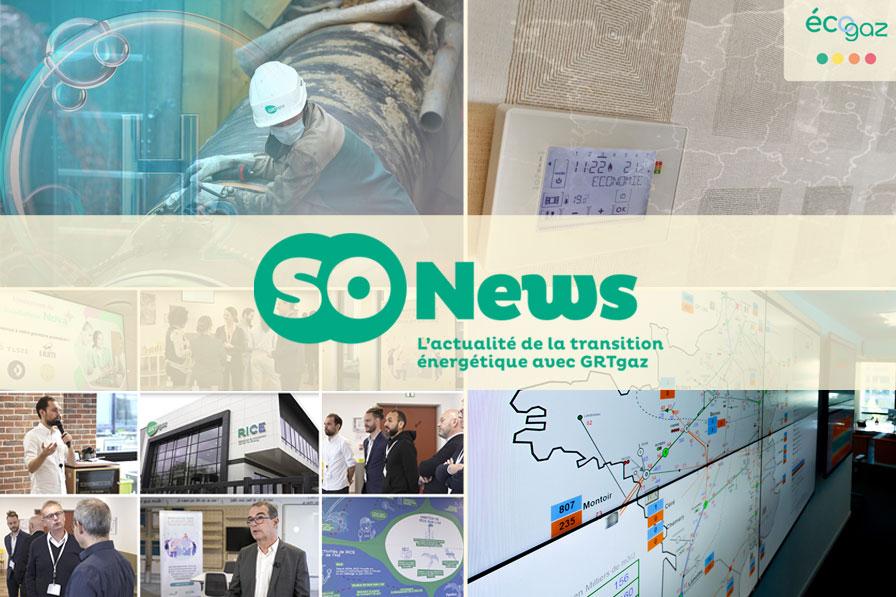Discover the sixth edition of soNews


This edition in summary
This “gas barometer” operated by GRTgaz supports the government’s low-carbon energy plan by informing individuals, companies and local authorities about the condition of the network. The goals are to encourage moderation and avoid, as far as possible, any gas consumption reduction measures.
The call for tenders launched last June by GRTgaz and Fluxys Belgium for cross-border hydrogen transport between France and Belgium was a success! Seventeen companies expressed an interest in connecting their production or consumption site to the planned H2 transmission network. A feasibility study will now be carried out.
GRTgaz has organised a study trip to increase awareness of advances made in hydrothermal gasification – a technology that produces low-carbon and renewable gas from organic waste. The trip to Switzerland includes a visit to the TreaTech pre-industrial pilot – the most advanced of its kind in Europe – installed on the premises of the Paul-Scherrer Institute in Villigen.
Based on his experience at Ecomaison, Fabien Camon shares his view of the interest in pyrogasification – a technology that produces renewable and low-carbon gas from solid waste.
Various adaptation measures are planned to guarantee France’s continuity of gas supply: low-carbon energy to reduce overall consumption; interruptibility to adjust consumption levels; and even load shedding as a last resort, which would only affect large industrial consumers.
The French public authorities have decided to install an interruptibility guarantee mechanism to bolster the security of gas supply. This will allow GRTgaz to reduce the consumption of participating large consumers on a contractual, remunerated basis. The call for tenders closed on 2 December.
For the past month, GRTgaz’s new incubator, Nova, has hosted four start-ups working on innovations linked to the energy and ecological transitions. Watch the video to find out about the launch of this first intake!